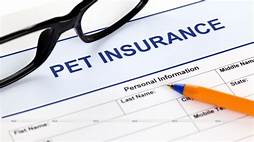What Is a Pet Screening for Rentals?
A pet screening for rentals is a process that landlords use to determine whether a prospective tenant is a responsible pet owner. This process may involve screening for the animal's health, behavior, and training. Landlords may also require pet owners to provide proof of vaccinations and insurance.

Why Do Landlords Require Pet Screenings?
Landlords require pet screenings for a number of reasons, including:
To protect their property from damage. Pets can cause damage to carpets, furniture, and other property. A pet screening helps landlords to identify pets that are likely to be destructive.
To reduce the risk of noise and nuisance complaints. Pets can be noisy and disruptive, which can disturb other tenants. A pet screening helps landlords to identify pets that are likely to be a nuisance to other residents.
To protect the health and safety of other tenants. Some pets may carry diseases or parasites that can be transmitted to other animals or humans. A pet screening helps landlords to identify pets that are a risk to the health and safety of other tenants.
What Does a Pet Screening Involve?
A pet screening typically involves the following steps:
A pet application. Prospective tenants must complete a pet application that includes information about the pet's breed, size, age, and temperament. The application may also ask about the pet's training and vaccination history.
A pet interview. Landlords may interview prospective tenants and their pets to assess the animal's behavior and temperament. The landlord may also ask about the pet's training and socialization history.
A pet reference check. Landlords may contact the pet's previous owners or veterinarians to get references for the animal.
How Can I Prepare My Pet for a Screening?
If you are planning to rent a home with your pet, you can take the following steps to prepare your pet for the screening process:
Make sure your pet is up-to-date on all of its vaccinations. You should also provide proof of vaccinations to the landlord.
Train your pet to behave well in public. Your pet should be able to walk on a leash, sit, stay, and come when called. It should also be friendly with other animals and people.
Socialize your pet with other animals and people. This will help your pet to behave well in a variety of situations.
Keep your pet clean and well-groomed. Your pet should be clean and free of fleas and ticks. It should also be brushed regularly to prevent shedding.
By following these tips, you can help your pet to make a good impression on the landlord and increase your chances of being approved for the rental.Declaration: All article resources on this website, unless otherwise specified or labeled, are collected from online resources. If the content on this website infringes on the legitimate rights and interests of the original author, you can contact this website to delete it.



